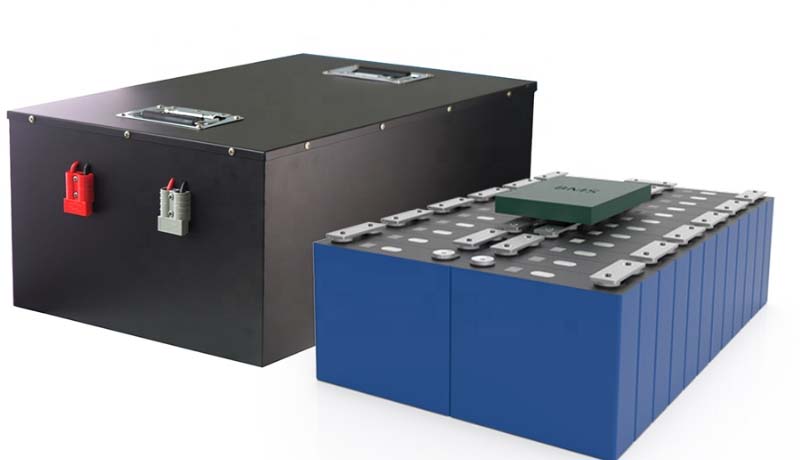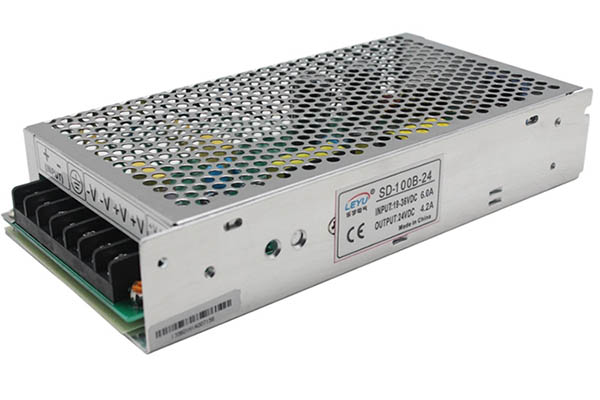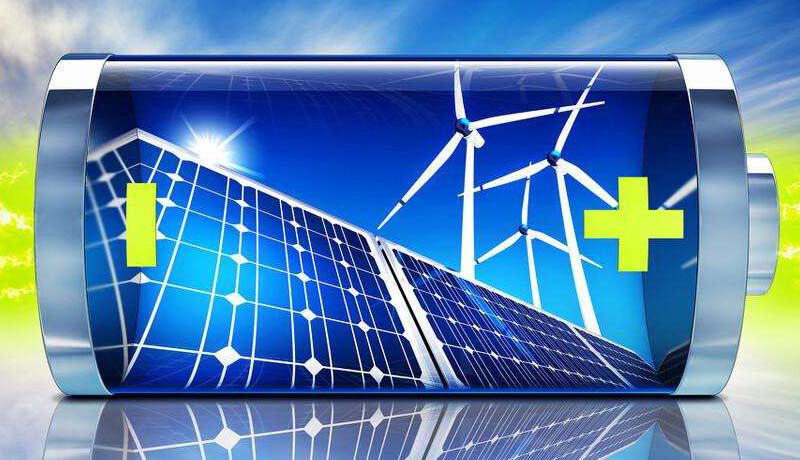Different types of batteries are also invented for different purposes. Lithium-ion and LiFePO4 batteries are common among most that can provide you with power, stability, and better charging retention at a lower cost.
But which one is better, LifePO4 vs. lithium-ion battery?
LifePO4 battery is better since it uses non-toxic chemical compounds that are eco-friendly and provide perfect chemical stability. You will get an uninterrupted connection.
On the other hand, the lithium-ion battery uses lithium cobalt dioxide as a cathode, which is very unsafe for the environment. It is also an unstable compound and fades away faster while charging or discharging. You will not get perfect chemical stability and electrical coverage.
What is a lifepo4 battery?
LiFePO4 batteries are unique batteries that generate electricity using lithium iron phosphate components. As a result, these batteries are capable of providing flawless electrical power while maintaining precise stability.
The components are more expensive than normal battery components, but they last longer. These components are also non-toxic, which means they won’t harm the environment. Power stations use these batteries because they last a long time and keep their power steady.
What is a lithium-ion battery?
Lithium-ion batteries generate electricity by utilizing lithium cobalt dioxide as a chemical component. As a result, such batteries cannot provide ideal electrical power while maintaining accurate stability for a long time.
The components are standard battery components that do not last a long time. They are also toxic, which means they damage the environment.
LiFePO4 vs. lithium-ion battery comparison chart.
| Comparison Topic | LiFePO4 | Lithium-ion |
| Chemical compound | Lithium iron phosphate. | LiCoO2 or LiMn2O2 |
| Discharge efficiency | 90% | 80% |
| Life cycle durability | 2000 | 400-1200 |
| Shelf life span | 350 | 300 |
| Energy density | 90–120 Wh/kg | 150–200 Wh/kg |
| Eco-friendly | Yes. | No. |
| Affordability | Price is a little bit higher but the overall maintenance cost is low. | Price is lower but the maintenance cost is higher. |
Head-to-head comparison between lifePO4 vs Lithium-ion
There are major differences between the LifePO4 and lithium-ion batteries to compare with. The major comparable facts are described below.
Which chemical compounds do they use?
The main difference between these two batteries lies in their chemical compounds. They both use different types of chemical compounds in their positive electrode or cathode.
The cathode of the lithium-ion battery is mainly made with lithium cobalt dioxide (LiCoO2). However, sometimes some companies use lithium manganese oxide as a cathode in their batteries. On the other hand, the LiFePO4 batteries use lithium iron phosphate as their cathode.
The use of LiFePO4 has increased these days because of its non-toxic compounds. The lithium iron phosphate doesn’t cause any damage to the environment. But LiCoO2 in lithium-ion batteries is a very toxic compound that is hazardous to both nature and the human body.
Does LiFePO4 use newer technology?
The lithium-ion batteries are an older technology than LiFePO4 batteries. They use LiCoO2 or LiMn2O2 as their positive electrode, which is a very toxic compound. Both of these compounds damage nature and are harmful to human anatomy.
That’s why phosphate-based technology was invented and introduced. They are eco-friendly and provide better thermal and chemical stability.
They also come with much more electricity and power at a lower cost. The manufacturers or the battery users don’t need to have any concerns about these batteries.
Which one offers a better life cycle?
Both of these batteries are rechargeable, so you will get a huge lifespan from them. However, charging and discharging slightly decrease the lifespan of the batteries. Still, in this case, the LiFePO4 battery is ahead.
The phosphate-based technology allows it to last a long time. The discharge efficiency of these batteries is more than 90%, which offers these batteries a longer life cycle. You will at least get around 2000 life cycle durability from the lithium iron phosphate batteries.
On the other hand, lithium-ion batteries provide 80% discharge efficiency because of their chemical compounds. As a result, the chemical compounds fade away faster and their lifespan is decreased.
Usually, these batteries provide 13–18 years of life if you manage them perfectly. That’s why LiCoO2 or LiMn2O4 provides cycle durability between 400 and 1200.
One provides a long period of storage benefit
As lithium-ion batteries come with less discharge efficiency, the chemical compounds in these batteries last less than LiFePO4 batteries. Consequently, the shelf life of these batteries decreases as well. The usual shelf life of lithium-ion batteries is almost 300 days.
On the other hand, lithium iron phosphate lasts longer than LiCoO2 or LiMn2O2. So they can store more electric power for a long time. The shelf life of LiFePO4 is also at least 350 days.
The difference between energy levels
The difference between energy levels can be calculated with the help of energy density. If one battery can provide better energy density than another battery, it means it can provide better energy and is suitable for power-hungry electronics.
The energy density of lithium-ion batteries is 150–200 Wh/kg. As a result, they are mostly used for electric devices that require a lot of power. So the temperature of these batteries is also very high.
On the other hand, the LifePO4 batteries provide 90–120 Wh/kg energy density, which allows them to discharge faster than lithium-ion batteries. Even in higher temperatures, their performance doesn’t go down.
So which one should you pick?
If you want to choose one of them, you should definitely choose LifePO4 batteries. Here are the reasons for that.
- Not only are they newer technology, but they also provide better electric power. The charging and discharge rates of these batteries are very good.
- The lithium iron phosphate in these batteries lasts a long time, so you don’t have to change the battery or its compound in the near future. It is very stable in higher temperatures and its performance doesn’t drop a bit.
- There is no chance of burning or exploding these batteries as they have very good chemical stability. On the other hand, the lithium-ion battery comes with a higher energy density, which decreases its stability.
- The compounds become very hot even at a stable temperature, so they fade away faster. The lithium iron phosphate also doesn’t cause any damage to the environment. Even if you dispose of the batteries after using them, they don’t cause any reaction to the soil.
- However, lithium cobalt di-oxide or lithium manganese dioxide is not eco-friendly and causes allergic reactions in human bodies. They also cause reactions with the soil and make hazardous chemical compounds.
- If somehow, those compounds get swallowed into your bodies with the food you eat, you may face severe medical issues. In the worst-case scenario, your eyes and skin could get damaged.
Frequently Asked Question
Here are some FAQs for you. Hope it will help you know which one is better for you.
Is LiFePO4 a lithium-ion?
No, LiFePO4 batteries are not lithium-ion batteries. Cathodes in lithium-ion batteries are made of lithium cobalt di-oxide (LiCoO2) or lithium manganese dioxide (LiMn2O2), whereas cathodes in LifePO4 are made of lithium iron phosphate.
How long do LiFePO4 batteries last?
The life span of the LiFePO4 batteries is very long. The compounds inside these batteries last longer and don’t get any damage while charging or discharging. As a result, they can last at least 5-7 years without any hard maintenance.
Do LiFePO4 batteries need a special charger?
No, you don’t need any special type of battery charger to charge the LiFePO4 batteries. These batteries require a 14–14.6-volt battery charger, and almost all AGM battery chargers can provide a voltage in this range. So you should pick a charge that fits in this range. If you choose a charge that comes with a lower voltage, the battery will not charge properly.
Conclusion
Both these two batteries have a very good charging and discharging rate, with enough stable chemical compounds. Their main distinction is whether they are environmentally friendly or not. So if someone asks, “LifePO4 vs. lithium-ion battery, Which one is better?” The answer will be the LiFePO4 battery.
The price of this battery is a little bit overpriced, but it is a one-time investment. You don’t need to spend a lot of money on the maintenance of these batteries. Their chemical compounds and electrodes also last longer than usual.
However, while using these batteries, make sure to put on enough safety gear. Don’t touch them with bare hands and don’t disclose them without any professional help. If you do so, in the worst-case scenario, the battery could burst.



